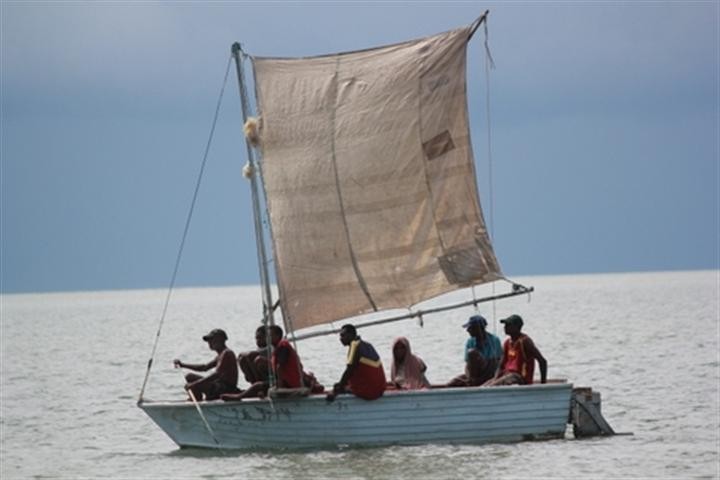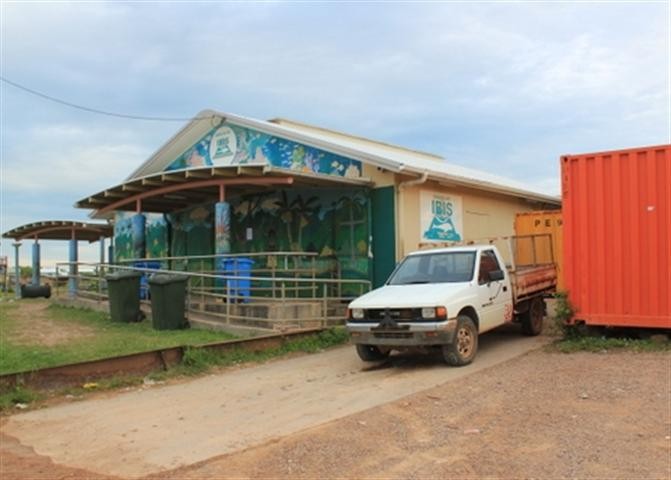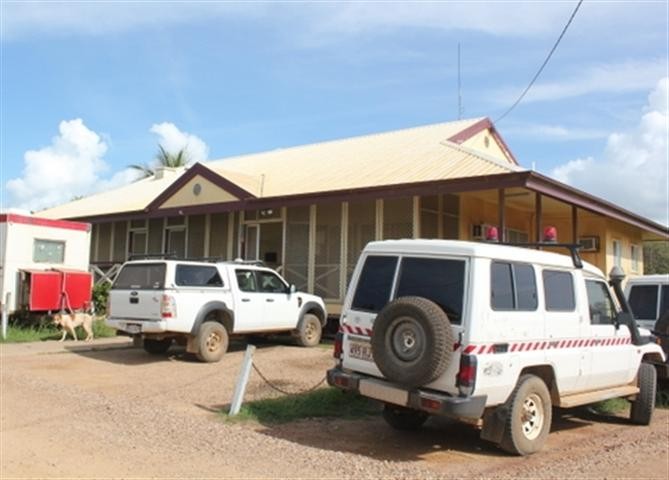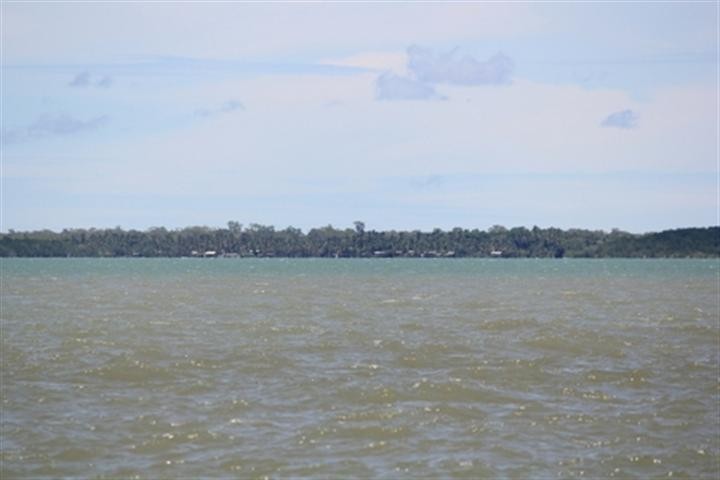Life on the border - impressions of life on Saibai Island
By JOL Admin | 23 February 2012
John Oxley Library Fellow Heidi Gibson reports on her impressions of life on Saibai following her oral history research visit to the island in January.

The scene is far from a typical Australian shopping trip. On the far northern Torres Strait island of Saibai the weekly supply barge has arrived. It’s followed by a constant stream of pedestrian traffic along the dirt road from busy shore to crowded store. It’s the first time I’ve seen so many Papuan people on Saibai. During my last stay in December, entry to the island for Papua New Guinean visitors had been closed due to water restrictions. I saw only a small number of PNG dinghies arrive then – usually sailed or paddled (petrol makes motoring expensive) across the narrow channel from their villages bringing sick people to the clinic.
I haven’t been over the Australian-PNG border so the small communities of Sigabadur (“Siga”) and Mabadawanon the shores opposite Saibai remain a mystery to me. The tops of Siga’s houses are tantalizingly visible across the watery divide but I cannot cross without a passport and visa. At night their lights twinkle in the distance. It’s strange to me – an Australian in Australia – being able to look out from a beach and see another country. Even stranger not being free to just jump in a boat and visit a place only three to four kilometres away.

Back on Saibai it’s business as usual at the only grocery store. Such a tiny shop given the lifeline of essential food it supplies – a handful of short aisles cluttered with unpacked boxes and busy people clamoring for the most desirable goods before this week’s barge delivery runs out.
The supplies are ‘essential’ in the most vital sense of the word. As on most Torres Strait islands, many of Saibai’s youth have left the traditional growing of fruit and vegetables to the few elderly still fit enough to garden. The adoption of a largely Western diet also means local hunting and fishing no longer satisfies all preferred tastes.
The PNG visitors weave quietly among island shoppers with fleeting eye contact and courteous nods; their clothes often ragged and dull-coloured. Papuan women in loose fitting island dresses walk the dirt road back to shore. They carry large bulk bags of Sunbeam rice on their heads; wear woven ‘hand bags’ on their chests strung from their necks; and their feet are often bare. Men and boys wear T-shirts and shorts. Rubber thongs the most popular choice among those with footwear.

Some men wait outside a large heat-hazed tin shed that sells gas and petrol. It opens for a few hours each weekday and with no petrol bowser, sells petrol by drums only. At around $68 for a 20 litre tin, powering a dinghy by motor is expensive for Islanders and prohibitive for Papuans.
By Saibai standards these are the scenes of ordinary life. For a visitor like me, they are remarkable happenings in contemporary Queensland.It’s an Australia that exists outside the media glare of asylum seekers but where people from the third world come almost daily for supplies and humanitarian aid. They are visitors to an island where the people speak English as a second or third language and live in a complex dynamic mix of traditional and Western beliefs. In their turn, the Islanders are part of a larger nation in which many of their countrymen seem to know them best as analternative category to “Aboriginal” when filling in government forms.
Amazing stuff for the history records? Absolutely.

Heidi Gibson - John Oxley Library Fellow, State Library of Queensland
Images supplied by Heidi Gibson.
Image 1 - A dinghy from a nearby Papuan village approaches Saibai
Image 2 - Evening quiet falls on Saibai’s only grocery store after a busy days trading
Image 3 - Saibai's community health clinic provides services to the local island community and visiting PNG nationals
Image 4 - The rooftops of Sigabadur village are visible from Saibais main foreshore
Comments
Your email address will not be published.
We welcome relevant, respectful comments.